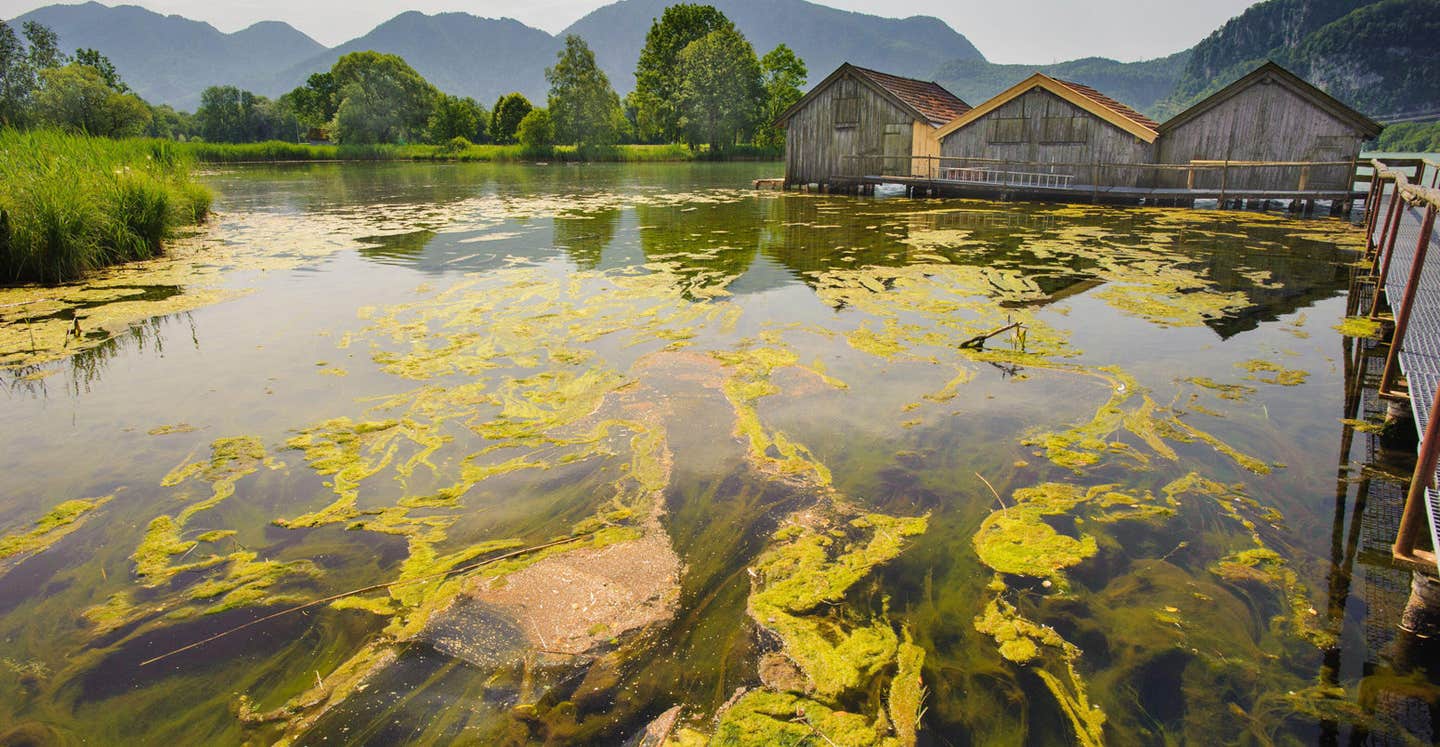Lake-dwelling bacteria could turn the tide on climate change
New groundbreaking research has shed light on the remarkable capabilities of these microorganisms and their underestimated role in mitigating climate change.

Methanotrophs consist of various groups, each with unique characteristics, and much about their lifestyle remains unknown. (CREDIT: CC BY-SA 3.0)
Methane is a potent greenhouse gas, notorious for its significant contribution to global warming. Lakes, in particular, are major sources of methane emissions. However, certain microorganisms help counteract this environmental threat. These organisms, known as methanotrophs, have the ability to utilize methane as a source of energy and growth, effectively preventing it from entering the atmosphere. As a result, methanotrophs act as crucial "biological methane filters."
Methanotrophs consist of various groups, each with unique characteristics, and much about their lifestyle remains unknown. A recent study conducted by researchers from the Max Planck Institute for Marine Microbiology in Bremen, Germany, in collaboration with the Swiss Eawag, has shed light on the remarkable capabilities of these microorganisms and their underestimated role in mitigating climate change.
Their findings, published in the journal Nature Communications, offer new insights into how these organisms function in environments where oxygen is scarce or nonexistent.
In their study, researchers focused on Lake Zug in Switzerland, a body of water nearly 200 meters deep, with oxygen-free conditions prevailing below a depth of 120 meters. Surprisingly, the oxygen-depleted waters of Lake Zug are home to aerobic methane-oxidizing bacteria (MOB). These bacteria typically rely on oxygen to survive, so the question arose: how can they break down methane in an environment devoid of oxygen?
To explore this mystery, the research team, led by Sina Schorn and Jana Milucka, took a closer look at these microorganisms' activity. They used methane molecules labeled with "heavy" carbon atoms (13C) and introduced them to natural lake water samples containing the resident bacteria.
By tracking the heavy carbon in individual bacterial cells using advanced instruments like NanoSIMS, the scientists observed how the bacteria converted methane into carbon dioxide. While carbon dioxide is also a greenhouse gas, it is less harmful to the climate than methane. Additionally, some of the carbon was directly incorporated into the bacterial cells, providing insight into which bacteria were active.
“Our results show that aerobic MOB remain active even in oxygen-free water,” explains Sina Schorn, now a researcher at the University of Gothenburg. However, this discovery applies only to a specific group of MOB, recognizable by their distinctive rod-shaped cells.
Related Stories
These bacteria were equally active in both oxygen-rich and oxygen-depleted environments. As Schorn notes, if lower rates of methane oxidation are observed in anoxic waters, it is likely due to the scarcity of these special rod-shaped cells rather than a decrease in bacterial activity.
The study also revealed surprising details about the metabolic flexibility of this group of bacteria. "Based on the genes present, we determined how the bacteria respond when oxygen becomes scarce," says Jana Milucka, head of the Greenhouse Gases Research Group at the Max Planck Institute.
The researchers identified genes linked to a unique methane-based fermentation process. While this process had been demonstrated in laboratory cultures of MOB, it had not been studied in natural environments until now. They also found several genes associated with denitrification, suggesting that the bacteria can use nitrate instead of oxygen to generate energy.
The fermentation process is particularly intriguing. According to Milucka, "If the MOB perform fermentation, they likely release substances that other bacteria can use for growth. This means the carbon contained in the methane is retained in the lake for a longer period and does not escape into the atmosphere." This discovery points to an unrecognized methane carbon sink in oxygen-free environments, which will need to be factored into future climate models.
This study provides a clearer understanding of who is responsible for breaking down methane in oxygen-free habitats and how this process occurs. The researchers demonstrate that methane-oxidizing bacteria play a surprisingly significant role in curbing methane emissions from these environments, thus helping to regulate the global climate.
“Methane is a potent greenhouse gas responsible for about a third of the current global rise in temperature,” Schorn emphasizes, underlining the importance of the study's findings. "Methane oxidation by microorganisms is the only biological sink for methane. Their activity is crucial for controlling methane emissions into the atmosphere and, consequently, for regulating the global climate.
Given the current and predicted increase in anoxic conditions in temperate lakes, the importance of MOB for methane degradation in lakes is expected to grow. Our results suggest that MOB will make a significant contribution to greenhouse gas mitigation and carbon storage in the future."
This research highlights the critical role of methanotrophs in maintaining the balance of our climate. As global temperatures continue to rise, understanding and harnessing the capabilities of these microorganisms could become increasingly important in the fight against climate change.
Note: Materials provided above by The Brighter Side of News. Content may be edited for style and length.
Like these kind of feel good stories? Get The Brighter Side of News' newsletter.
Joshua Shavit
Science & Technology Writer | AI and Robotics Reporter
Joshua Shavit is a Los Angeles-based science and technology writer with a passion for exploring the breakthroughs shaping the future. As a contributor to The Brighter Side of News, he focuses on positive and transformative advancements in AI, technology, physics, engineering, robotics and space science. Joshua is currently working towards a Bachelor of Science in Business Administration at the University of California, Berkeley. He combines his academic background with a talent for storytelling, making complex scientific discoveries engaging and accessible. His work highlights the innovators behind the ideas, bringing readers closer to the people driving progress.



